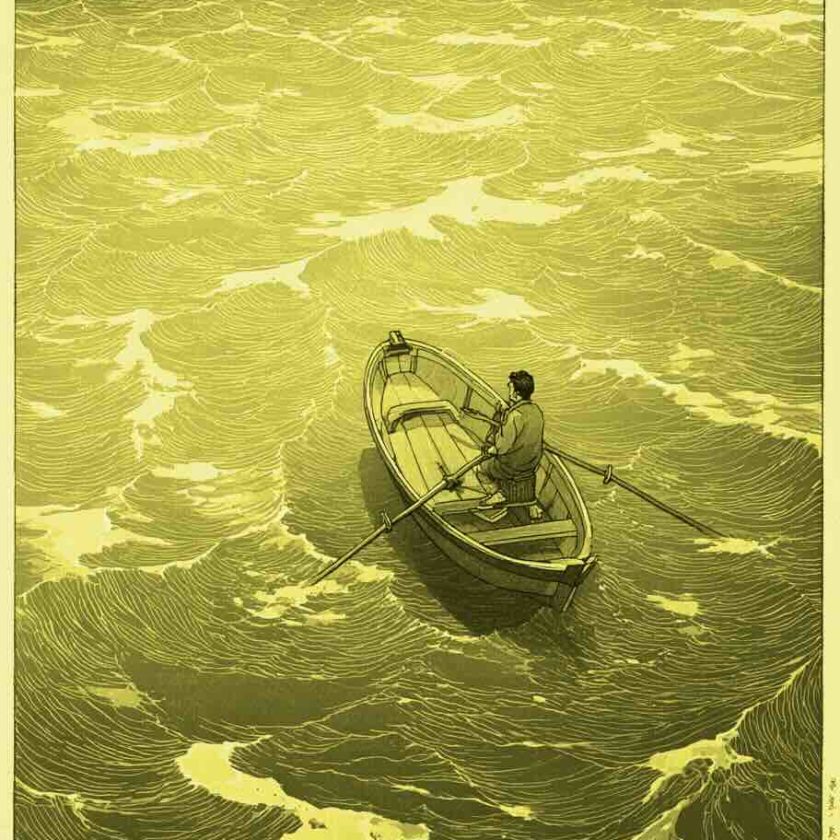We can deplore the imposition of a self-righteousness, of a way of thinking that annihilates the plurality of opinions and the thousand ways of seeing the world. Internet allows a return of paganism while we have the impression that globalization and its standardizing speeches only make us clones.
Plurality of myths equals plurality of groups
Why did the monotheisms fight against the pagan religions, is it because their model was the only one to give a discourse of truth? Obviously not. What the monotheisms fought against were competing myths, different narratives that could only diminish their power.
The role of the founding myth
A myth has no other role than to create a coherent human group. All myths are inherently false in that their purpose is not to describe an event accurately (Remus did not drink from the she-wolf’s udder, just as the water of the Red Sea probably did not open up in reality to let Moses and his people through). The story creates a bond, and finally, the more implausible the story, the more the people who believe in it will be linked together. Those who believe in the sphericity of planet Earth do not feel a sense of belonging to a particular group. The scientific evidence does not create enough possibilities of bonding other than that of belonging to the camp of the reasonable and yet superior people to all those who do not adhere to the very principle of the scientific approach. On the other hand, it is quite different for the platists. They are mocked, mocked and ridiculed. This experience of rejection is the very ground for the consolidation of the group to which they belong. It is the same for all other myths, the truthfulness of which can be a hindrance to the construction of a sense of belonging. For there to be a bond, there must be a possibility of doubt, it is from belief that the possibility of union is born. Believers define themselves as such, they are not scholars or connoisseurs: they believe in God and do not say that they know him.
Internet or the return of paganism
In this same logic, since the standardization of cultures is a new totalitarianism, today’s humans feel the need to recreate links and at the same time, to recreate myths.
No fake news, just real myths
It is by this will to create a link that the conspiracy phenomena emerge, the ones that crystallize around the adhesion to fake news. Remember that television has been neither more nor less at its advent than the new tabernacle. Where once priests recited the Gospels, TV has taken over the task of propagating the official truth. By controlling narratives, you control allegiances.
The problem is that the Internet has represented a Pandora’s box without people realizing it. The possibility of multiplying narratives is infinite. Fake news is nothing more nor less than the materialization of these new myths intended to create new groups whose allegiances will be deviant. It is above all for this that they are fought, it is not the concern of truth fundamentally that is the origin of them. Indeed, the very selectivity of information actually creates a distortion of the perception of truth.
The need for tribalism is always present
The need for tribalism is always present
Man is made to maintain links with a limited group of individuals, 150 on average (Dunbar’s number). This is why he is not adapted to large political and social groups called States. It is impossible to have deep ties with millions of fellow citizens. Family values are breaking down and with them the possibility of creating an immediate tribal bond. People live isolated as never before. This situation does not take away the need for tribal belonging. It is the tribe that has sustained us as homo sapiens for several hundred thousand years and more if we look back to our distant hominid ancestors. The tribal need is deeply rooted in our DNA, it will take time to disappear. It is therefore normal to want to look for a tribe on the web even if we live alone and confined in our apartment.
The new paganism is just a new manifestation of tribalism
The term pagan is pejorative, it comes from Latin and means peasant by opposition probably to the city dwellers. It is necessary to understand here uncivilized because the Romans were supposed to bring civilization to the populations who lived in communion with nature. The word civil (which gave civilization) is to be brought closer to Latin “civis” meaning “citizen”. It is necessary to understand by there “compatriots” vis-a-vis the “foreigners”, “civilized” vis-a-vis the “barbarians”. This explains the importance of assimilation to civilization, which makes it possible to make these foreigners members of our group, provided that they renounce their rites and their myths. The strength of the etymological meaning is found elsewhere, as in the word province as opposed to capital. Province comes from the verb “to conquer”, this term essentially designates the territories conquered by the capital. It is a Roman term that was taken up in France because Parisian centralism was so prevalent there.







